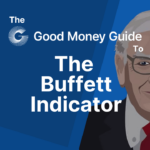Alphabet’s share price NASDAQ:GOOG fell -8.00% after hours on a revenue miss and concerns about increased capex, at Google’s parent company.
Alphabet Inc the parent company of Google, reported mixed results in its Q4 2024 earnings last night.
The earnings release was upbeat but it fell short of investor expectations.
Alphabet posted a +12.0% year-over-year revenue increase, to $96.5 billion, driven by gains in Services and Cloud Computing. However, that was below analysts’ projections of $96.56 billion.
A small margin of error you might think, yet that differential contributed to a near -8.0% drop in Alphabet’s stock, in after-hours trading
Despite the revenue miss, Alphabet performed well elsewhere;
Its net income jumped by +28.0% to $26.5 billion, while its earnings per share rose to $2.15, and thus above the street’s $2.13 forecast.
Alphabet’s operating income was also higher, up by +31.0% to $31.0 billion, thanks to higher margins across many of its business units.
As part of the earnings release Alphabet announced a $75.0 billion capex plan for 2025. That figure was well above Wall Street’s estimate for capex of just $59.7 billion this year.
A month ago that increase in spending would have been seen as a positive. However, in a post-DeepSeek environment, that’s no longer a given.
Alphabet CEO, Sundar Pichai, highlighted the importance of these investments in maintaining Alphabet’s lead in AI innovation, but the market wasn’t convinced.
On a positive note, Google Cloud continued to grow and posted a +30.0% increase in sales, which jumped to $12.0 billion in Q4, though that number also fell short of Wall Street’s lofty expectations.
Alphabet’s previous performance is coming back to haunt it somewhat, as it’s now being priced for perfection by the market.
Meanwhile, YouTube advertising revenue rose by +14.0% to $10.5 billion, underscoring Google’s dominance in this area of digital media.
However, concerns about rising competition from challengers, such as OpenAI, Perplexity and DeepSeek, have raised questions, about Alphabet’s ability to maintain its competitive edge, whilst managing its cost base.
Overall, the Alphabet results reminded us of the strong fundamentals within the business, but at the same time, they also highlighted the challenges the company now faces. In what could be a transitional period in the worlds of AI, cloud computing, search, digital content, and online advertising.
Google Dividends
There are no future dividends presently declared for GOOG:US as of Feb 5th, 2025. The declaration and payment of dividends are at the discretion of the Company.
Historic Ex-Div dates and amounts
- 09/12/2024: 0.20 USD
- 09/09/2024: 0.20 USD
- 10/06/2024: 0.20 USD

With over 35 years of finance experience, Darren is a highly respected and knowledgeable industry expert. With an extensive career covering trading, sales, analytics and research, he has a vast knowledge covering every aspect of the financial markets.
During his career, Darren has acted for and advised major hedge funds and investment banks such as GLG, Thames River, Ruby Capital and CQS, Dresdner Kleinwort and HSBC.
In addition to the financial analysis and commentary he provides as an editor at GoodMoneyGuide.com, his work has been featured in publications including Fool.co.uk.
As well as extensive experience of writing financial commentary, he previously worked as a Market Research & Client Relationships Manager at Admiral Markets UK Ltd, before providing expert insights as a market analyst at Pepperstone.
Darren is an expert in areas like currency, CFDs, equities and derivatives and has authored over 260 guides on GoodMoneyGuide.com.
He has an aptitude for explaining trading concepts in a way that newcomers can understand, such as this guide to day trading Forex at Pepperstone.com
Darren has done interviews and analysis for companies like Queso, including an interview on technical trading levels.
A well known authority in the industry, he has provided interviews on Bloomberg (UK), CNBC (UK) Reuters (UK), Tiptv (UK), BNN (Canada) and Asharq Bloomberg Arabia.
You can contact Darren at darrensinden@goodmoneyguide.com





